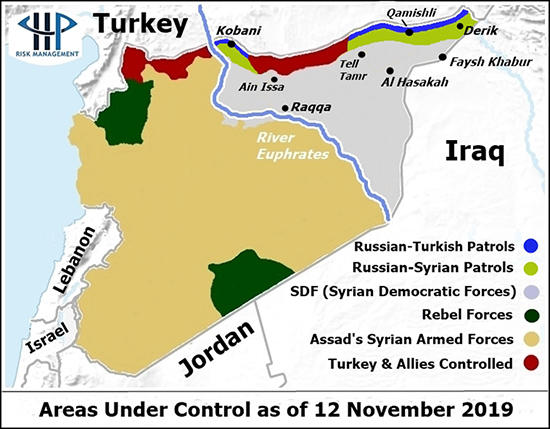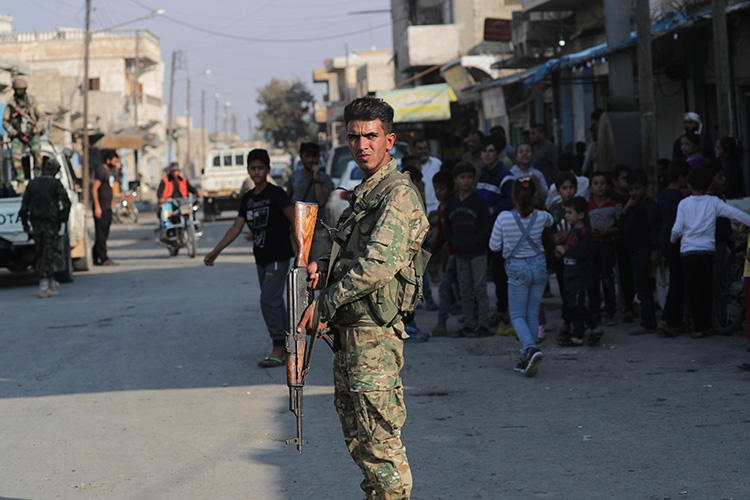Following Turkey’s military incursion into northern Syria in October, dozens of local and international journalists have reported on developments from the region. The military action has increased risks for journalists, with at least three killed during Turkish airstrikes last month, according to CPJ research.
Journalists traveling to the northern Syria region of Rojava to cover the conflict are at risk from battlefield-related violence in the vicinity of the front lines, arrest or detention from Syrian government forces, or becoming a target of kidnapping, detention, or killing by Islamic State militants and their allies, according to HP Risk Management, a security firm that provides specialized safety information to CPJ.
Journalists reporting from Rojava or planning to travel there should consider the following:

Safety Advice
Before you travel
- Work with trusted and reliable fixers, and check their references. Ensure you work with a fixer who can provide an honest assessment of any risks
- If you are able to work with a security adviser, ensure that at the minimum they have up-to-date medical qualifications, because medical facilities are limited
- If appropriate, consider using a less conspicuous vehicle such as a standard saloon car
On the ground
- Check the latest security situation with locals and other journalists before traveling to any location. If possible, ask for updates at checkpoints along the way, but ensure you seek out a balance of information from trusted sources
- Do not try to bypass the Kurdish-led Syrian Democratic Forces (SDF) authorities, which largely control the region. Always apply for any necessary paperwork in good time
- Exercise caution when approaching or working near the front line. Journalists are at risk from air and drone strikes, artillery, and mortar strikes
- Avoid broadcasting live or filming from rooftops
- Where possible, avoid staying in or eating at establishments such as hotels and restaurants known to be frequented by foreigners, which can be a target
- Plan overnight stops in advance, and only stay in areas considered to be relatively safe and that are away from the front line. Aim to get to your accommodation before dark
- Always use discretion when filming, especially around sensitive sites and state infrastructure
- Bring a well-stocked emergency first aid kit and identify all available SDF and civilian medical facilities in case of injury. Emergency airlift evacuation options in Rojava will be severely limited. The U.S. will likely maintain a presence in Rojava, however it is not clear if they can assist journalists in distress who are not embedded with the troops
- Keep the appropriate personal protective equipment (PPE) on hand at all times
- Bring emergency provisions in case you are cut off or food supplies are disrupted
- Take steps to ensure your digital devices are secure, in advance of travel. CPJ’s digital safety kit has steps and resources to protect you and your team
- Communicate only via devices and platforms that you know are secure and that won’t compromise the safety of you and your team
- Be aware of the risk from landmines and improvised explosive devices. The Islamic State militants used both in territory that was previously under its control
- Ensure that you have adequate travel and life insurance
CPJ’s online Safety Kit provides journalists and newsrooms with basic safety information on physical, digital, and psychological safety resources and tools, including on covering civil unrest and war reporting.
Journalists can access information on border crossings, safe hotels, and logistical information in Rojava and northern Syria, from HP Risk Management’s advisory.
Journalists requiring assistance should contact CPJ via [email protected].
